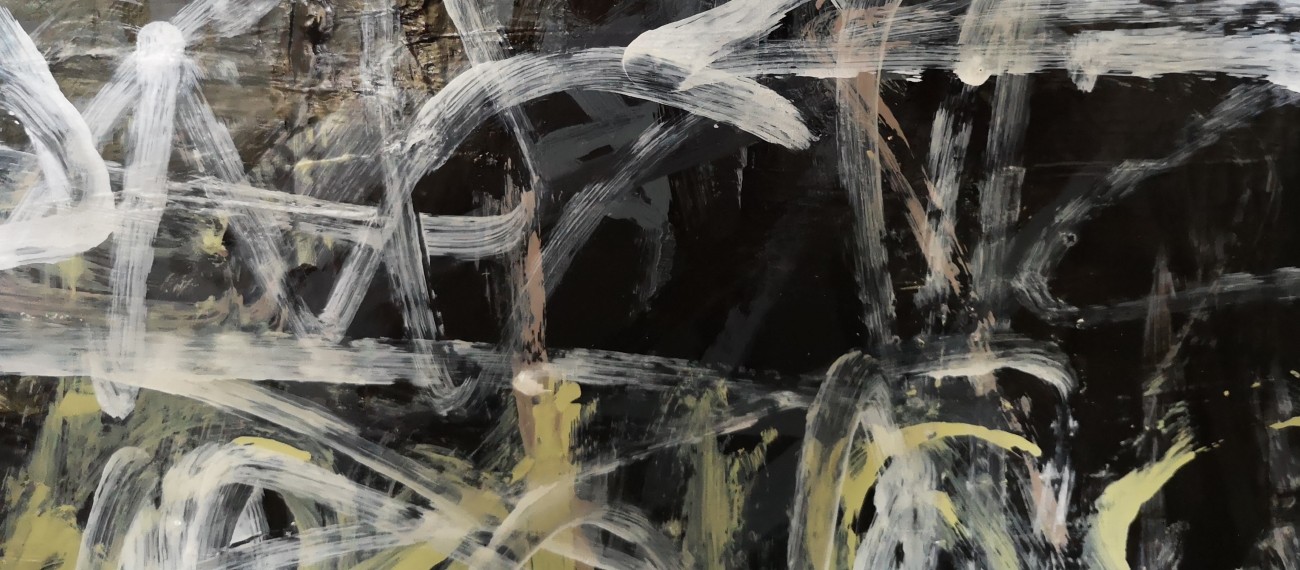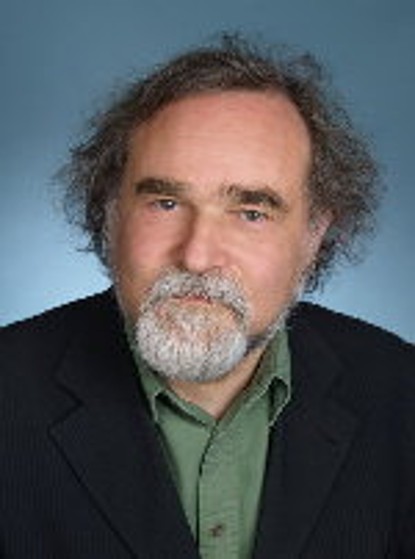Repository
I. Ontological / Metaphysical Considerations
The term „metachemistry“ was introduced by Gaston Bachelard and served primarily to identify the need for a Whiteheadian ontology that could draw lessons from chemistry and that would hold for all of the sciences. This paper will follow Bachelard's proposal only to a very limited extent and take the notion of „metachemistry“ in a different direction. Where Bachelard considered chemistry a pure science in its own right and generalized from a specific state of its development, “metachemistry” is in the following thought to provide general insights from an understanding of chemistry as an impure technoscience. The difference between metaphysics and metachemistry therefore signifies a shift in the kinds of questions one asks about the sciences and the technosciences and the kinds of answers one might expect. In respect to chemistry, this would amount to abandoning the question about the specific character of chemistry as opposed to physics. Instead of chemistry aspiring to hold its own in the pantheon of the sciences, the notion of metachemistry refers to chemistry as a technology for bringing forth new things. In respect to the implicit presuppositions of knowledge production, metaphysics refers to the conditions that allow for the scientific representation of facts while metachemistry to the conditions for the technoscientific realization of things. Arguably, Lavoisier's dictum that „there is nothing new in art and nature“ is a precondition for scientific explanation and representation, but the alchemical tradition in all of chemistry and now, for example, in nanotechnology subverts this dictum permanently.
See also: Metachemistry 1 / Die politische Ökonomie der Technowissenschaften Coming soon
- Inverted Platonism of Technoscience
Coming soon
Links & Downloads
II. Case Studies
- Philosophy of Nanoscience
Nanoscientific research has been characterized as an “engineering way of being in science.” This mode of research calls for a philosophy of technoscience that investigates the four questions: i) What is the role of theory and theory‐development in nanoscale research, and what kinds of theories are needed for nanotechnological development? ii) What are the preferred methods and tools and the associated modes of reasoning in nanoscientific research? iii) What is nanotechnoscience and how are its objects constituted? iv) What kind of knowledge do technoscientific researchers typically produce and communicate? The consideration of these questions yields a survey of nanotechnoscience in terms of disciplinary questions (a complex field partially disclosed by stretching closed theories), of methodology (constructions and qualitative judgments of likeness), of ontology (a thin conception of nature as unlimited potential), and of epistemology (acquisition and demonstration of capabilities). In all four cases, the strictly philosophical discussion leads to societal dimensions and questions of value.
- Synthetic Biology at the Limits of Science
What happens when some of the traditional questions and concerns of the philosophy of science are brought to the non-traditional field of synthetic biology? Given that synthetic biology is a very diverse field, this might serve to highlight the many ways in which it is business as usual. However, prominent concepts and research practices of synthetic biology can be seen to confound established ideas of how knowledge is produced and validated in the sciences. By highlighting and readying for discussion the tension between alternative images of knowledge production in synthetic biology, this paper seeks to open up debate among philosophers of science, and within the diverse community of synthetic biologists. With the advance of emerging technosciences like synthetic biology what is at stake is not primarily how they might or might not change the world. At stake, first of all, are epistemic values, the ethos and authority of science, and the relation of knowledge and power. Building on ongoing discussions, the paper begins by exhibiting contested notions of understanding, rational engineering, and design. In a second step, it turns to different conceptions of biological “systems” by presenting divergent accounts of the origin of synthetic biology and of how systems biology gave rise to synthetic biology. Finally, it seeks to focus the debate on a definition of synthetic biology, according to which it builds, for constructive purposes, on achievements of technical control of biological complexity, that is, that it uses these achievements to generate, rather than reduce, complexity.
III. Epistemology
- Collapse of Distance
Already the title of this paper shoulders too heavy a burden of proof. By contrasting science and technoscience it alludes to an epochal break or fundamental shift in the culture of research. „Science“ refers to theoretical representations of nature as we know them primarily from the history of physics and primarily from a tradition that begins with Einstein and ends with Weinberg or Hawking. It is supposed to be succeeded by technoscience, mode-2 research, post-academic, entrepeneurial, fínalized, or post-normal science as we know it from pharmaceutical research, nanotechnology, ICT, and, of course, synthetic chemistry or materials research. Any such suggestion of an epochal break is vulnerable to objections. Of these, the most obvious perhaps is that there was no historical break but merely a shift of attention. Instead of focusing on the continuing inquiries by theoretical physicists and evolutionary biologists we are now foregrounding those disciplines that have always operated in a „technoscientific“ or „entrepeneurial“ manner (Elzinga 2002). This objection can be answered here only by suggesting that this shift of attention does not owe to the whim of historians and philosophers of science but corresponds to a shift in societal expectations and in the way researchers even at universities conceive of themselves: Chemistry and materials research have displaced theoretical physics at the pinnacle of the sciences, we increasingly look to them and the various nano-, bio-, or information technologies if we want to know what science is.
- Object Lessons
Discussions of technoscience are bringing to light that scientific journals feature very different knowledge claims. At one end of the spectrum, there is the scientific claim that a hypothesis needs to be reevaluated in light of new evidence. At the other end of the spectrum, there is the technoscientific claim that some new measure of control has been achieved in a laboratory. The latter claim has not received sufficient attention as of yet. In what sense is the achievement of control genuine knowledge in its own right; how is this knowledge acquired; and publicly validated? Notions of tacit or embodied knowledge, of knowledge by acquaintance, of engineering or thing knowledge, and reconstructions of ability or skill take us only part of the way towards answering such questions. The epistemology of technoscience needs to account for the acquisition and demonstration of a public knowledge of control that does not consist in the holding of propositions, even though it is usually communicated in writing: Technoscientific knowledge is, firstly, objective and public insofar as it is exhibited and documented. Secondly, it presupposes a specific context of technology and expertise. Thirdly, it is communicable, even where the achieved capability itself is not. Knowledge of control entails, fourthly, a knowledge of causal relationships, and it sediments itself, fifthly, as a habit of action in the sense proposed by Charles Sanders Peirce.
- Werkwissen
»Die Welt ist die Gesamtheit der Tatsachen, nicht der Dinge« – hiermit drückt Wittgenstein eine Grundüberzeugung der modernen Erkenntnis- und Wissenschaftstheorie aus. Dem gegenüber steht in letzten Jahren eine Renaissance des Dings. An die Stelle eines unvermittelten Dingwissens tritt in diesem Beitrag eine Grammatik des Ausdrucks der Dinge im Werk. Analog dem Tatsachenwissen und ihm vorausgesetzt ist ein objektives Werkwissen darum, wie Dinge in Werken zusammenwirken und was sie im Werkzusammenhang zu leisten vermögen.
Coming soon
Links & Downloads
- The Advancement of Ignorance
Coming soon
Links & Downloads
IV. Aesthetics / Object-Relation
- Matters of Interest
This discussion paper proposes that a meaningful distinction between science and technoscience can be found at the level of the objects of research. Both notions intermingle in the attitudes, intentions, programs and projects of researchers and research institutions – that is, on the side of the subjects of research. But the difference between science and technoscience becomes more explicit when research results are presented in particular settings and when the objects of research are exhibited for the specific interest they hold. When an experiment is presented as scientific evidence which confirms or disconfirms a hypothesis, this agrees with traditional conceptions of science. When organic molecules are presented for their capacity to serve individually as electric wires that carry surprisingly large currents, this would be a hallmark of technoscience. Accordingly, we propose research on the ontology of research objects. The focus on the material presence of research objects makes this a specifically philosophical project.
- Of Landscapes and Caves
When we look horizontally into and beyond the scene, we see a lake in its natural setting. Here, the landscape organizes an interplay of multiple features and its aesthetic unity permits the viewer to question these relations. Seen from above, however, the lake becomes absorbed into a two-dimensional aerial map and reduced to a detail of a whole. Here the new media technology of aerial photography transforms the landscape into a map and turns the picture of a space into a flat arrangement of signs. One might also consider another transformation by another media technology. It constructs landscapes that transform the spectator into an actor. Here the landscape ceases to be the picture of a scene but becomes identified with a space for doing and building. It is no longer an object of beauty or knowledge that is beheld by artists and geographers. The scene becomes a terrain that needs to be negotiated as one passes through it. Astrid Schwarz describes the move from landscape to map as a discontinuous change within the continuous movement of seeking higher and higher vantage points. Similarly, the profound transformation from spectator to actor, from pictured space to negotiated terrain results from a continuous development that started with attempts to render interior spaces visible by rendering them as landscapes. However, as cavernous spaces yield landscape views, the landscape becomes a cavernous space that beckons to be entered and explored. Indeed, one might trace this transition quite literally from techniques for the representation of the interior landscapes of caves to techniques of rendering representations as interactive caves.
Coming soon
Links & Downloads
V. Epochal Break? Historical Dimensions
- The Age of Technoscience
Instead of reviewing various accounts of past and current research practice, I want to make acase for an epochal break between the scientific and the technoscientific enterprise. However, to make a case is different from settling a matter of fact. Rather than decide whether or not scientific knowledge production has changed as a whole, I want to show in what sense it is adequate, illuminating, even important to consider the various diagnosed changes in terms of an epochal Doing so is not a neutral exercise but motivated by concern for the scientific enterprise. From the point of view of science and how it understands itself, hardly anything could be as dramatic as the shift to a technoscientific mode of research. From the point of technoscience, in contrast, the whole history of science and engineering research has always been technoscientific. In a final, apparently dialectical twist to my argument, I therefore argue that those who deny the epochal break have happily settled into the age of technoscience, while those who see an era coming to an end are those who care about science and its deep connection to modernity and the enlightenment project.
- Demise of System Thinking
Stuart Kauffman and Brian Goodwin treat organisms as complex systems. Their claim revitalizes the vitalism of Hans Driesch who situated biological processes within a general theory of order. Along with many others who emphasize the challenge of complexity all three maintain that “[w]e will have to rethink what science is itself ” (Kauffman 2000, 22). But what is this challenge to canonical ways of doing science? Here, Kauffman and Goodwin part company. Though both fend off the accusation that the very idea of a “scientific vitalism” is conceptually incoherent, only Kauffman’s scientific vitalism involves a wholly different science of complexity while Goodwin foregrounds a wholly new class of complex phenomena which, however, are subject to familiar modes of causal analysis.—Kauffman and Goodwin’s disagreement about the requirements for a “science of complexity” reappears in a new guise in discussions of systems biology and synthetic biology and generally of complex systems.
Coming soon
Links & Downloads
- Changing Perspecitves
The philosophy of science and the philosophy of technology share the same fate. The experimental turn in philosophy of science and the empirical turn in philosophy of technology open the black boxes of explanatory models and technical systems, and consider the creation of phenomena and artefacts. And yet, technology is viewed through the lens of science, subservient to or derivative of representation and the relation of mind and world. The philosophy of technoscience and an epistemology of working knowledge introduce a technological turn that affords a view of research as technological practice, both in science and in engineering.
Coming soon

























